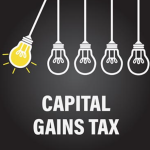Non-Registered Accounts in Canada: A Flexible Investment Option

Non-registered accounts offer Canadians a flexible and convenient way to grow their wealth, allowing them to invest and withdraw money at their discretion. These accounts are a versatile tool for those who want more freedom with their investments. Here’s a closer look at how non-registered accounts work and the benefits they offer.
What is a Non-Registered Account?
A non-registered account is a taxable investment account, meaning the income earned from investments in these accounts is subject to tax. This includes interest, dividends, and capital gains. Unlike registered accounts, such as RRSPs or TFSAs, non-registered accounts don’t have contribution limits or restrictions on withdrawals, making them highly flexible for managing investments.
Key Features of Non-Registered Accounts
Non-registered accounts come with several advantages that make them an attractive option for many investors:
- Unlimited Contributions and Withdrawals: There are no caps on how much you can contribute or when you can withdraw, offering you total control over your investment decisions.
- Broad Asset Flexibility: Non-registered accounts can hold various asset types, including stocks, bonds, real estate, and even collectibles. This flexibility allows you to diversify your portfolio and tailor it to your financial goals.
- Tax-Loss Harvesting: If you sell an investment at a loss, you can use those losses to offset any capital gains, reducing your overall tax burden. Unlike registered accounts, which don’t offer this opportunity, non-registered accounts allow you to take advantage of this tax strategy.
- No Expiry Date: Unlike TFSAs or RRSPs, non-registered accounts don’t have an expiration date. You can keep contributing to them and investing over the long term without worrying about reaching a limit.
Despite these benefits, there are also some drawbacks:
- Taxable Investment Income: All capital gains, interest income, and dividends from a non-registered account are taxable, which can reduce your overall return.
- No Tax Deferral: Unlike RRSPs, non-registered accounts don’t offer tax-deferred growth, meaning you’ll pay taxes on the income you earn each year.
How Non-Registered Accounts Work
Non-registered accounts allow investors to buy and sell a wide range of investments without worrying about contribution limits. While these accounts don’t provide tax advantages, they offer the flexibility to withdraw funds at any time. Taxes are applied to income as it is realized, which simplifies the reporting process for most investors.
Types of Non-Registered Accounts
There are two common types of non-registered accounts in Canada:
- Cash Account
A cash account is the most basic type of non-registered account. It allows investors to buy and sell securities using only the available cash in the account, ensuring that you won’t take on debt to finance your investments. This simplicity makes it a straightforward option for many investors. - Margin Account
A margin account allows you to borrow money from the broker to purchase securities, with the securities themselves serving as collateral. While this provides the potential for higher returns if the investments perform well, it also increases the risk, as you will be charged interest on the borrowed funds.
Taxation of Non-Registered Accounts
The taxation of non-registered accounts depends on the type of income you earn. Here’s a breakdown of how different types of income are taxed:
- Capital Gains: When you sell an asset at a profit, the gain is taxable. However, only 50% of the capital gain is subject to tax. For example, if you sell an asset for $1,000 more than you paid, you’ll only pay tax on $500 of that gain.
- Interest Income: Interest earned from savings accounts, GICs, and bonds is fully taxable at your marginal income tax rate. This is often higher than the tax rate on capital gains.
- Dividend Income: Dividends are also taxable, but Canadian residents can benefit from a dividend tax credit when receiving dividends from Canadian companies, which can reduce the tax burden.
How to Open a Non-Registered Account
Non-registered accounts are widely available through banks, investment firms, and online platforms. Opening one is relatively easy—simply choose a financial institution, complete the necessary paperwork, and deposit your funds. Once opened, the account remains active as long as it contains investments.
Best Investments for Non-Registered Accounts
When choosing investments for your non-registered account, it’s important to consider your goals, risk tolerance, and time horizon. Here are some options to consider:
- Stocks and Equities: If you’re looking for higher returns, stocks may be a good option, though they come with higher risk. You can directly buy shares in companies, or invest in exchange-traded funds (ETFs) and mutual funds that offer diversified exposure to the stock market.
- Bonds: Bonds provide more stable, predictable returns compared to stocks. Government bonds are generally safer, while corporate bonds offer higher yields but come with increased risk.
- Mutual Funds: Mutual funds pool money from multiple investors to buy a mix of stocks, bonds, and other securities. They are managed by professionals, making them an ideal option for hands-off investors.
- Guaranteed Investment Certificates (GICs): If you’re more conservative, GICs offer a guaranteed return on your principal, though their returns are typically lower than stocks or bonds.
- Real Estate and MICs: Real estate has historically been a strong performer, but it can require significant capital and management. A more passive way to invest in real estate is through Mortgage Investment Corporations (MICs), which pool funds to invest in a variety of mortgages.
Conclusion
Non-registered accounts offer flexibility, unlimited contributions, and a range of investment options, making them a great addition to your portfolio. Whether you are looking to invest in stocks, bonds, real estate, or other assets, these accounts provide the freedom to manage your investments according to your goals. While they do come with certain tax considerations, they can still be a powerful tool for growing your wealth over time.


 English
English 












































































































































































































































































































































































